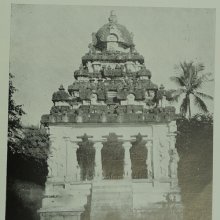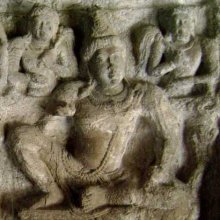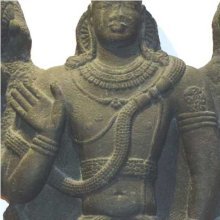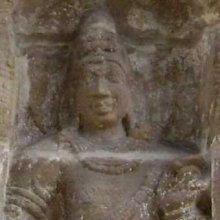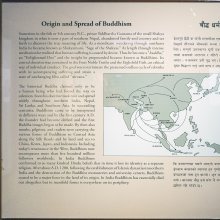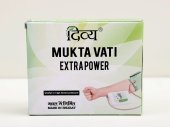Mukta, Muktā: 39 definitions
Introduction:
Mukta means something in Buddhism, Pali, Hinduism, Sanskrit, Jainism, Prakrit, the history of ancient India, Marathi, Hindi, biology, Tamil. If you want to know the exact meaning, history, etymology or English translation of this term then check out the descriptions on this page. Add your comment or reference to a book if you want to contribute to this summary article.
Mukta has 38 English definitions available.
Alternative spellings of this word include Mukt.
Images (photo gallery)
Languages of India and abroad
Sanskrit dictionary
[Deutsch Wörterbuch]
Source: Cologne Digital Sanskrit Dictionaries: Böhtlingk and Roth Grosses Petersburger WörterbuchMukta (मुक्त):—(partic. von 1. muc)
1) adj. s. u. muc . —
2) m. Nomen proprium a) eines der sieben Weisen unter Manu Bhautya [Mārkāṇḍeyapurāṇa 100, 31.] — b) eines Kochs [Rājataraṅgiṇī 7, 1635. 1650. 1652. 1654. 1674. 1713. fg.] —
3) f. ā a) Perle (die von der Perlenmuschel Abgelöste, Befreite) [Amarakoṣa 2, 9, 93.] [Hemacandra’s Abhidhānacintāmaṇi 1068.] [Anekārthasaṃgraha 2, 187.] [Halāyudha 3, 42.] maṇimuktāprabālānām [Manu’s Gesetzbuch 9, 329. 11, 167. 12, 61.] [Mahābhārata 8, 4913. fg.] [Suśruta 1, 5, 2. 228, 5.] [Raghuvaṃśa 4, 50. 16, 69.] [Meghadūta 105.] [Spr. 3350. 4925.] [Varāhamihira’s Bṛhajjātaka S. 53, 101. 80, 5. 81, 13. fgg. 104, 61.] [BṚH. 2, 2.] [Kathāsaritsāgara 21, 98.] [PAÑCAR. 1, 1, 73.] bharaṇavrata [Oxforder Handschriften 284,b,47.] śuddhi [Amarakoṣa 3, 4, 25, 168.] Vgl. maṇi, śaṅkha und mauktika . — b) Hure [Hemacandra’s Anekārthasaṃgraha] — c) eine best. Pflanze, = rāsnā [Ratnamālā im Śabdakalpadruma]
Source: Cologne Digital Sanskrit Dictionaries: Sanskrit-Wörterbuch in kürzerer FassungMukta (मुक्त):——
1) Adj. s.u. 1. muc. —
2) m. Nomen proprium — a) eines Ṛṣi unter Manu Bhautya. — b) eines Kochs. —
3) f. ā — a) Perle [Rājan 13,152.] — b) *Hure. — c) *eine best. Pflanze , = rāsnā. — d) Nomen proprium eines Flusses [Wilson's Uebersetzung des Viṣṇupurāṇa 2,194.] —
4) mukte Präp. mit Instr. ausser — auch [Mahābhāṣya 5,32b.33,1.50,1.7,130,1.] [Böhtlingk’s Sanskrit-Chresthomathie 239,16.22.240,12.242,28.]
Sanskrit, also spelled संस्कृतम् (saṃskṛtam), is an ancient language of India commonly seen as the grandmother of the Indo-European language family (even English!). Closely allied with Prakrit and Pali, Sanskrit is more exhaustive in both grammar and terms and has the most extensive collection of literature in the world, greatly surpassing its sister-languages Greek and Latin.
See also (Relevant definitions)
Starts with (+171): Mukta jhuri, Mukta-barsi-jhara, Mukta-hridaya, Mukta-ilaka, Mukta-jhuri, Mukta-parivartana, Mukta-rupagrama, Mukta-uparikara, Mukta-vanijya, Mukta-varshi, Muktabamdha, Muktabandhana, Muktabha, Muktabharana, Muktabharanasaptamivrata, Muktabharane, Muktabhasma, Muktabuddhi, Muktacakshus, Muktacarita.
Ends with (+123): Abdamukta, Abhavavinirmukta, Abhinirmmukta, Abhinirmukta, Abimukta, Adhimukta, Adimukta, Agamavinirmukta, Ahimukta, Akarnamukta, Akshayamukta, Amukta, Anadimukta, Anamukta, Anirmukta, Anunmukta, Apadamukta, Apratimukta, Ardhamukta, Asamayavimukta.
Full-text (+456): Mugdha, Muktahasta, Panimukta, Muktakancuka, Muktaphala, Muktavali, Karamukta, Mauktika, Mugdhata, Jivanmukta, Vimugdha, Muktagara, Mugdhadhi, Mugdhabhava, Muktabandhana, Muktasphota, Mugdhasvabhava, Muktahara, Gummia, Atimukta.
Relevant text
Search found 139 books and stories containing Mukta, Mookta, Mugda, Mugdha, Mugtha, Mugthaa, Muktā, Muktha; (plurals include: Muktas, Mooktas, Mugdas, Mugdhas, Mugthas, Mugthaas, Muktās, Mukthas). You can also click to the full overview containing English textual excerpts. Below are direct links for the most relevant articles:
Brihad Bhagavatamrita (commentary) (by Śrī Śrīmad Bhaktivedānta Nārāyana Gosvāmī Mahārāja)
Verse 1.2.85 < [Chapter 2 - Divya (the celestial plane)]
Verse 2.4.170 < [Chapter 4 - Vaikuṇṭha (the spiritual world)]
Verse 2.2.207 < [Chapter 2 - Jñāna (knowledge)]
Prasthanatrayi Swaminarayan Bhashyam (Study) (by Sadhu Gyanananddas)
8. Some Clarity Regarding Mukti < [Chapter 5 - Analysis on the basis of Soteriology]
7.3. The Body of a Mukta in Akṣaradhāma < [Chapter 5 - Analysis on the basis of Soteriology]
7.4. Upasya-Upasaka Relationship < [Chapter 5 - Analysis on the basis of Soteriology]
Garga Samhita (English) (by Danavir Goswami)
Verse 2.6.16 < [Chapter 6 - The Liberation of Aghāsura]
Verse 2.6.22 < [Chapter 6 - The Liberation of Aghāsura]
Verse 1.12.24 < [Chapter 12 - Description of Śrī Nanda’s Festival]
Hari-bhakti-kalpa-latikā (by Sarasvati Thkura)
Shankaracharya and Ramana Maharshi (study) (by Maithili Vitthal Joshi)
Chapter 3.4(b) - Types of Mokṣa (according to Ramaṇa Maharṣi)
Siddhanta Sangraha of Sri Sailacharya (by E. Sowmya Narayanan)
Related products
(+40 more products available)
